EU acknowledges Azerbaijan’s position, signals strategic reset Pragmatism replaces prejudice
In the first half of this year, Azerbaijan’s exports to EU countries increased by 24.2%—nearly a quarter. This represents the political and economic dimension of a broader process of mending ties, which began to take shape this spring following the April visit of top EU diplomats to Azerbaijan. The European Union has effectively acknowledged the legitimacy of Baku’s actions to restore its territorial integrity. Gradually, European policymakers are coming to terms with another evident reality: cooperation with Azerbaijan is not just the best way to address several of their pressing challenges—it is, in some cases, the only realistic path forward. Still, Azerbaijan must remain vigilant. The higher a country rises, the more intrigue and pressure it must withstand.
A breakthrough in EU relations is a merit of the Azerbaijani government
This year, the European Union has indeed taken a step toward pragmatism in its relations with Baku, yielding swift and constructive results. Achieving this was no easy task after years of condescending attempts by Euro-liberal circles to lecture Azerbaijan on domestic policy and on rectifying the consequences of territorial seizures by Armenian nationalists in the late Soviet era. In October of last year, the European Parliament once again adopted a resolution criticising alleged legal “violations” by Azerbaijan. There is little need to dwell on the hypocrisy of such documents—one need only recall how the same European Parliament repeatedly refused to investigate multi-billion-euro corruption schemes involving its own politicians.
It was difficult for Brussels to abandon its previous course and shift to constructive engagement—partly due to the efforts of certain politicians within the EU, such as the current President of France and the former President of Poland, who continued to support Armenian revanchism.
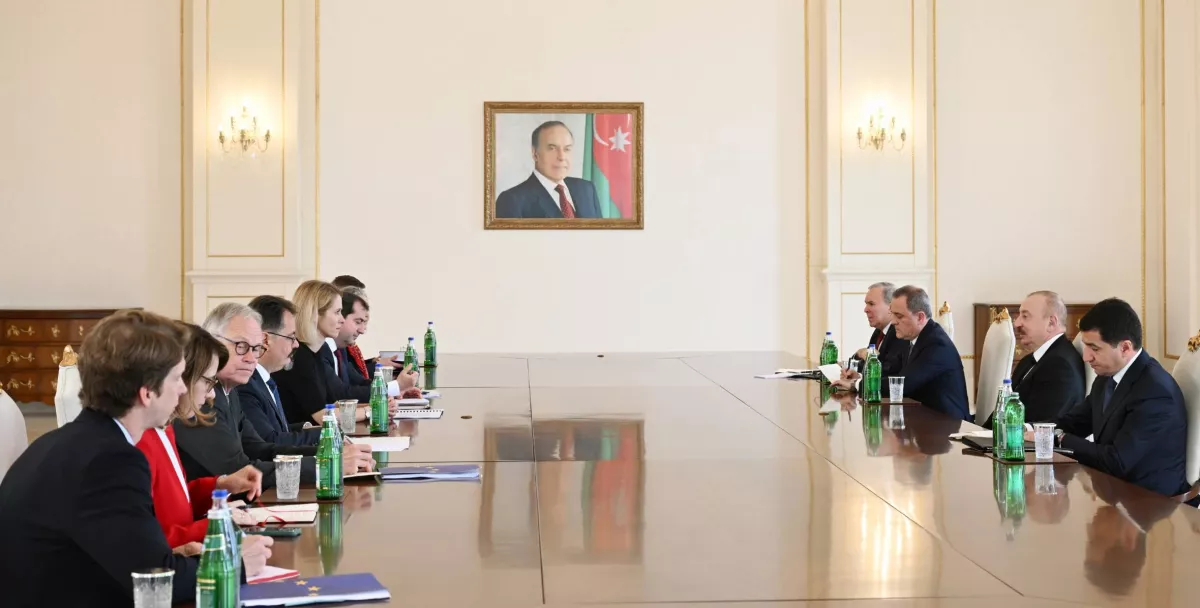
The recent changes in EU policy appear all the more significant. Their scale became noticeable as early as the end of April, when a delegation led by the EU’s foreign policy chief, Kaja Kallas, arrived in Baku. She called Azerbaijan an “important partner of the EU in the South Caucasus.” At first glance, this may seem like ordinary diplomatic courtesy. However, it is worth recalling how many years Azerbaijan was lectured about “proper governance, human rights, and democratic norms,” effectively denying the country’s people the ability to independently address these issues. In this context, Kaja Kallas’s visit can be seen as a break in Brussels’ previous dogmatic and ideologised approach.
It is no coincidence that President Aliyev commented that Brussels is demonstrating a willingness “to leave behind old stereotypes and recognise Azerbaijan as one of its key partners.”
In May, the head of state took part in another summit of the European Political Community (EPC) held in Tirana. Following this, the President of the European Council, António Costa, announced that the EPC summit in 2028 will be held in Azerbaijan (and Latvia). Notably, this decision by Brussels is also intended to balance the holding of a similar summit in Armenia next year.
It is also significant that we are talking specifically about the European Political Community (EPC) — an initiative established by French President Emmanuel Macron in 2022 as a forum for EU countries and their closest partners. And now Macron, who for years pursued an anti-Azerbaijani policy, agrees to hold a summit in Baku!
Thus, while recognising the current breakthrough in relations with the EU, it is important to understand the scale and nature of these changes. This achievement was made possible not by Baku’s concessions to external demands nor by the “goodwill” of European politicians. The breakthrough is the result of the resilience of the Azerbaijani people, who resisted attempts at destabilisation, and the consistent policy of the Azerbaijani leadership, backed by the country’s development successes and victories on the battlefield.
Economics and geopolitics leave Brussels no choice
Today, Azerbaijan truly holds strong positions, and these continue to strengthen. A key role in this is played by energy cooperation. In June, the third annual meeting of the high-level dialogue between Azerbaijan and the EU on energy issues took place.
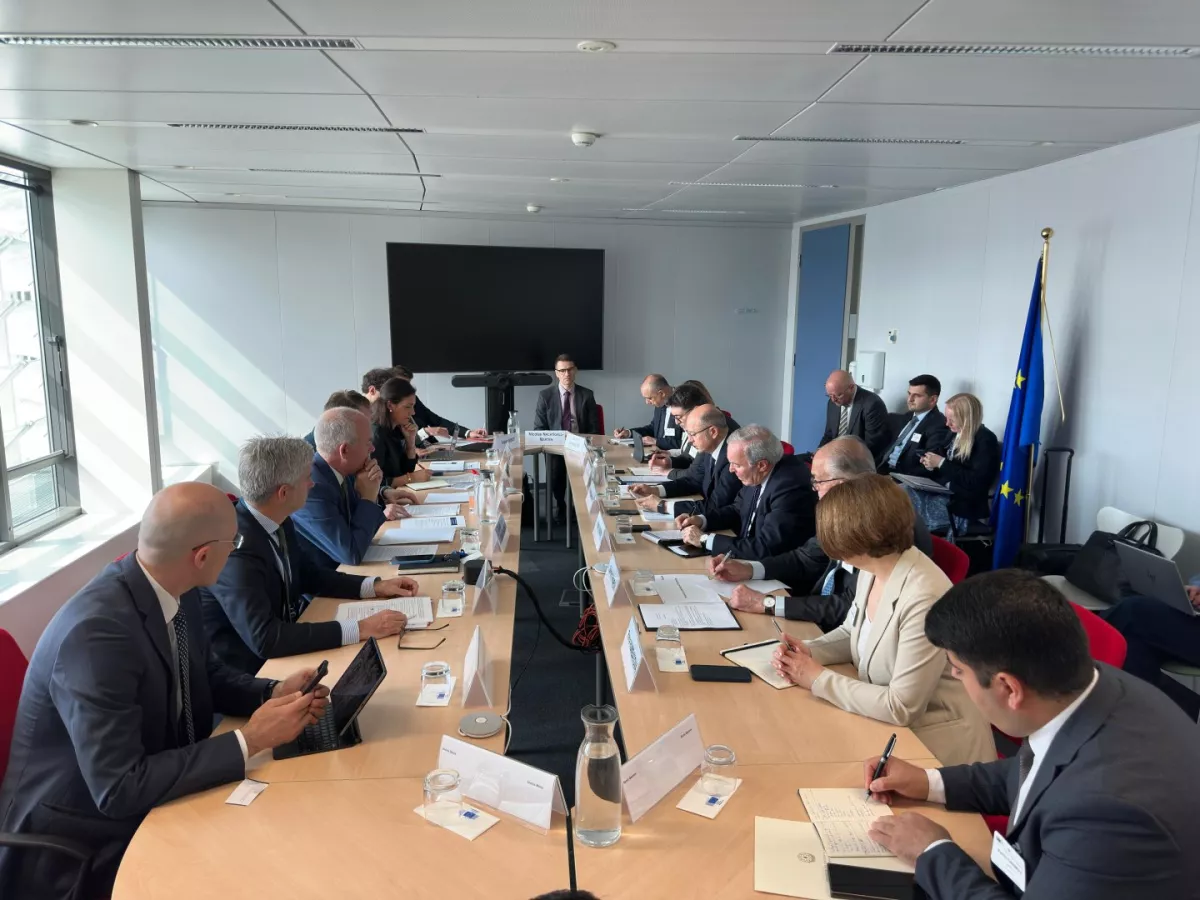
Last year, gas exports from Azerbaijan to the EU increased by 9.5%, reaching 13 billion cubic metres. This year, half of the country’s total gas exports will be directed to the European Union. Plans are in place to raise supplies to 20 billion cubic metres by 2027.
Baku views these relations as a strategic partnership and expects reciprocal steps from the EU — namely, the modernisation of infrastructure and the removal of regulatory barriers. However, Brussels has been slow to act, preferring instead to debate whether Azerbaijan is capable of delivering such volumes.
In response, Azerbaijan reasonably points out that there should be no doubt about its capabilities. New gas fields are being developed, and the use of renewable energy sources domestically is freeing up additional volumes of gas for export. For Baku to deliver the planned quantities, the EU must remove its own obstacles — stop limiting long-term contracts to the year 2049 and allow the European Investment Bank to finance the expansion of the Southern Gas Corridor.
In other words, it’s time to stop debating whether the chicken or the egg comes first — the gas or the pipelines. The gas will flow if the pipelines are ready. Appeals to current stagnation only serve to underscore the inadequacy of the existing infrastructure and legal framework.
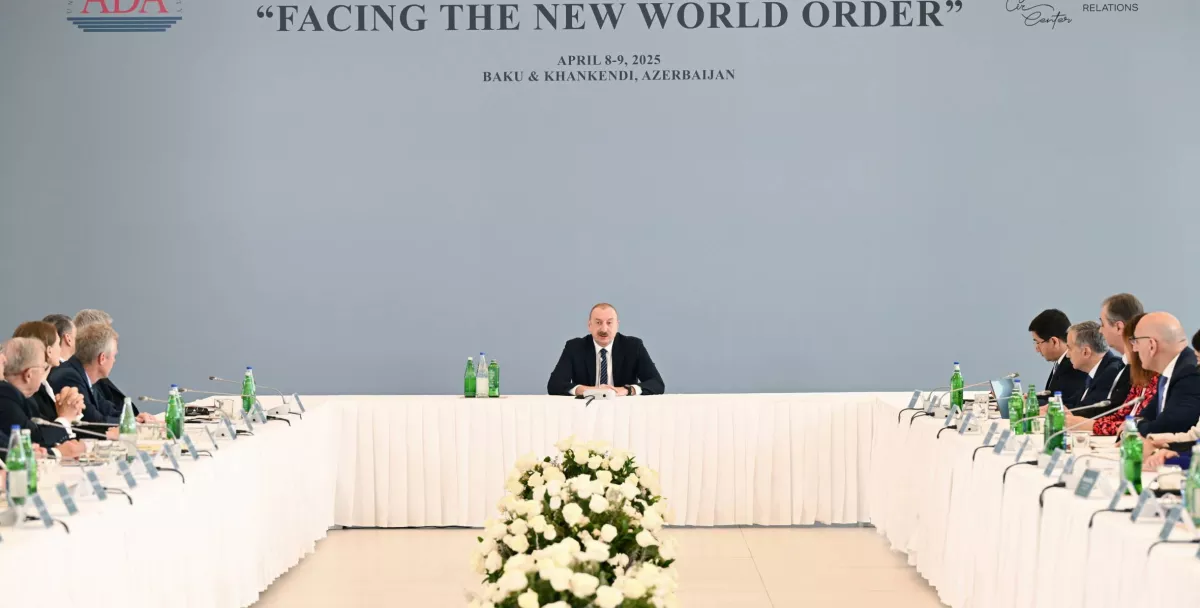
This is precisely what President Aliyev pointed out in April, stressing that if Brussels fails to act, Azerbaijan could redirect its gas elsewhere.
Such debates on the EU's part are surprising, especially considering that after turning away from Russian gas, the EU’s options are limited. Without increased supplies from Azerbaijan, the bloc will face serious difficulties.
Moreover, it’s not just Azerbaijani gas that can be delivered via Azerbaijan — the country also serves as a potential transit route for gas from other suppliers. More importantly, Azerbaijan is the only foreseeable overland corridor connecting the EU with China and Central Asia. This may prove even more crucial. The EU–China summit held on Thursday highlighted the ongoing tensions in their relationship. The EU declined to sign China’s climate declaration, and Beijing, in turn, cut the summit down to a single day.
At the same time, Central Asia is increasingly important to the EU as a source of resources, labour, and a growing market. But access to the region is only possible via Azerbaijan, which, along with Georgia, occupies a unique transit position. There is no alternative route.
Meanwhile, access to Central Asia is narrowing. Kazakhstan, for instance, has long faced challenges exporting hydrocarbons via Russia. This issue re-emerged just days ago, when Russia temporarily banned the loading of foreign tankers at Black Sea ports — a move that hit Kazakh exports. Reuters linked the restriction to the EU’s latest package of sanctions against Russia.
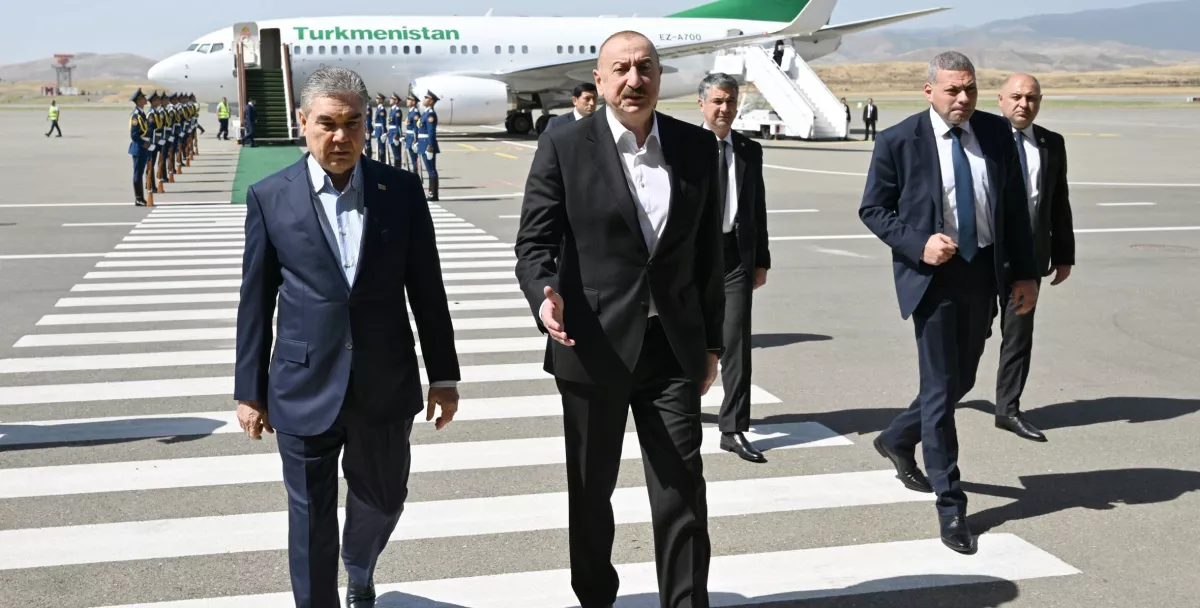
Azerbaijan is already taking steps to address such challenges. Last week, the Chairman of Turkmenistan’s Halk Maslahaty, Gurbanguly Berdimuhamedov, visited Baku and discussed with President Aliyev the prospects of building the Trans-Caspian Gas Pipeline — a project that would link Turkmenistan to the Southern Gas Corridor via Azerbaijan. This would allow Turkmen gas to reach Europe, bypassing Russia and Iran.
Berdimuhamedov previously told Western journalists: “Ashgabat is ready to engage with European partners on the issue of gas exports to European Union countries. One of the most promising routes for such deliveries is the Trans-Caspian corridor.” However, as in the case of Azerbaijan, the EU is reluctant to invest in the necessary infrastructure and avoids signing long-term contracts.
Some circles in Brussels are suggesting that cooperation with Azerbaijan can wait — pointing to expected LNG deliveries from Qatar in 2026. But this option is both more expensive and riskier, given Qatar’s geographic location and the transport vulnerabilities associated with the Suez Canal.
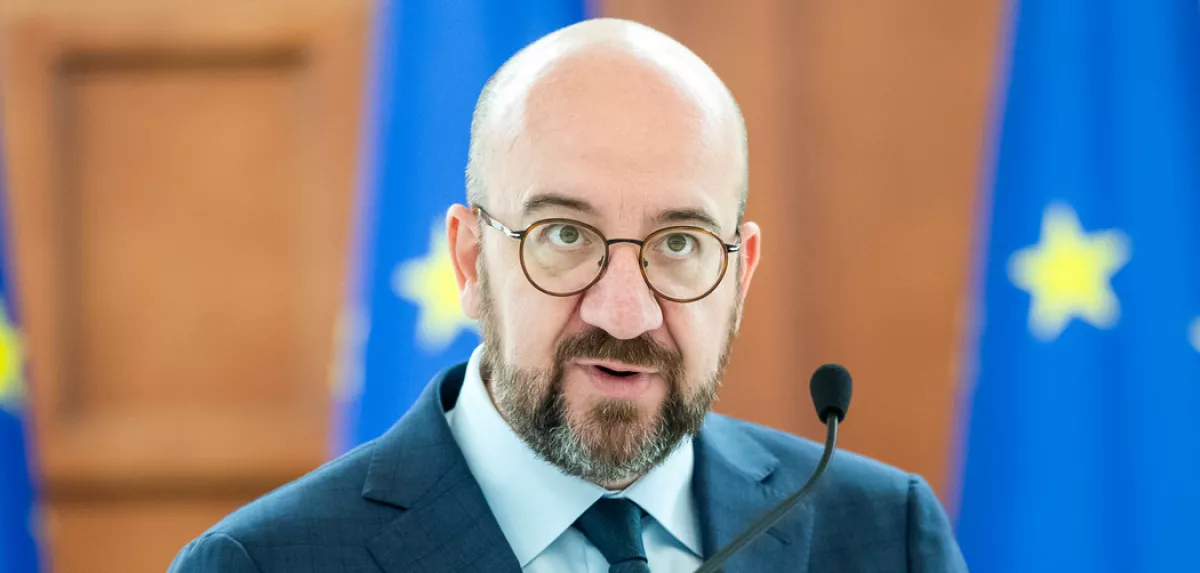
And here we see that, under current conditions, the EU has no alternative to Azerbaijan. In this context, it is worth recalling that when the European Political Community was established — the very forum to which Baku is now being invited — the then-President of the European Council, Charles Michel, called for the creation of a “European geopolitical community.” Today, Azerbaijan is naturally beginning to play an important role in European geopolitics.
It is joining this community not because it has been graciously granted partner status or deemed to “comply” with certain Euro-liberal values. Rather, it is beginning to shape processes that are critical to the EU and is, de facto, becoming a participant in this European geopolitical community. It is integrating into European structures in the same way the founding members once did — by negotiating its own terms and preserving its sovereignty. The right way. Not in the way that new members have been accepted in recent years — through unconditional capitulation and blind obedience to the dictates of self-appointed “Euro-integrators.”
Azerbaijan (alongside Georgia) is setting an example that closer cooperation with the European Union and other structures is possible while maintaining national sovereignty. This is a major achievement of the country’s leadership.








